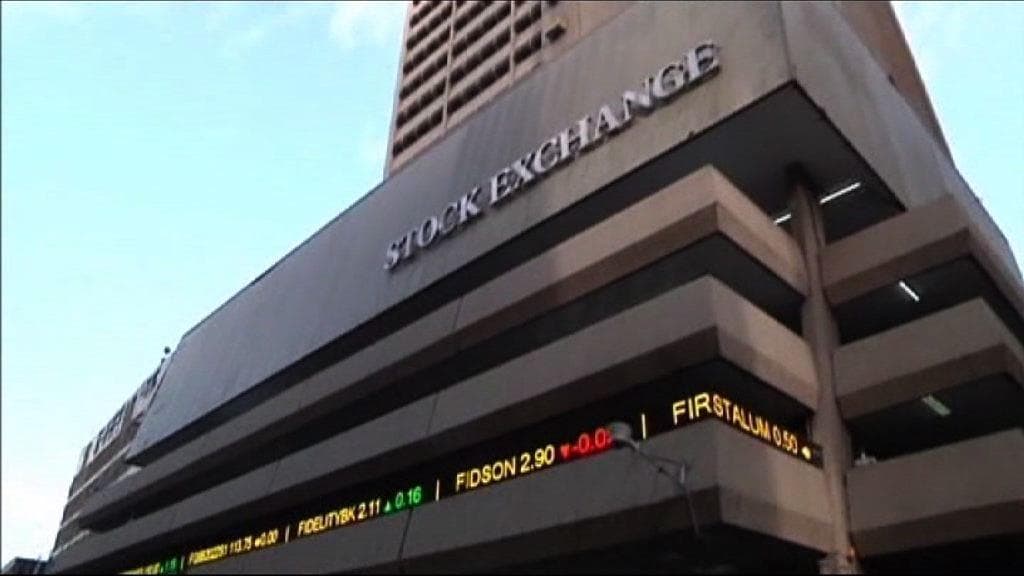
Nigerian stocks drop N246 billion as Trump calls the country a "country of concern."
Amidst these developments, financial analysts swiftly called for calm, reassuring the public that the fundamental strengths of the Nigerian economy remain robust. However, the stock market saw considerable profit-taking by investors, particularly in key stocks. This activity dragged the market capitalization down to N97.583 trillion by the close of Monday’s trading, marking a 0.25% (or N246 billion) decline from its N97.829 trillion opening value for the week.
Consequently, the Nigerian Exchange Limited All-Share Index (NGX ASI) wrapped up the day at 153,739.11 basis points, reflecting a 0.25% decrease (or 387.35 basis points) from the previous week's closing of 154,126.46 basis points. Capital market analysts largely attributed this downward movement to speculative trading by investors.
In a post on Truth Social, Trump had explicitly stated he instructed the Pentagon to “prepare for possible action” and warned of an immediate suspension of United States aid to Nigeria, Africa’s most populous nation and a key OPEC member. Nigerian President Bola Tinubu, however, quickly rejected Trump’s comments, describing them as a misrepresentation of Nigeria’s "consistent and sincere efforts to safeguard freedom of religion and belief for all Nigerians."
Mr. Aruna Kebira, Managing Director of Globalview Capital Limited, explained to THISDAY that investor profit-taking, particularly in companies like Aradel Holdings Plc, significantly impacted the stock market's performance. While he acknowledged that a sustained market downtrend this week *could* be linked to President Trump’s threats, he emphasized that the stock market primarily responds to its own forces, citing profit-taking across Aradel Holdings and 38 other stocks. He cautioned against definitively concluding that investors reacted solely to Trump's remarks, noting that any potential future impact remains uncertain.
Echoing this sentiment, Mr. David Adnori, Vice President at Highcap Securities Limited, observed that investors on the NGX were trading with caution. He highlighted the Nigerian market's current resilience to external shocks, largely due to its strong dominance by local investors.
Adding to the market's turbulence, a Bloomberg report from Monday indicated that Nigeria's dollar bonds also suffered losses following Trump's statements. The report detailed that Nigerian dollar bonds across all maturity curves plummeted, ranking among the top ten worst performers globally in emerging markets by 9:50 a.m. in Lagos. Bonds set to mature in 2047 experienced the steepest decline, dropping 0.6 cents on the dollar to 88.26 cents.
Despite these immediate reactions, traders and analysts interviewed by THISDAY suggested that the market's initial response was largely emotional and fleeting, emphasizing that Nigeria's core economic strengths remain firm. One anonymous fixed-income trader even viewed the noticeable sell-offs as a prime opportunity for "bargain hunters," noting, "the initial panic was more of a knee-jerk reaction than a reflection of Nigeria’s true risk profile." Jimi Ogbobine, Head of Consulting at Agusto Consulting, shared this perspective, acknowledging that markets often become jittery over geopolitical statements but expressing confidence that such tensions usually find diplomatic resolutions.
Ogbobine further elaborated, "President Trump’s comments, focusing on Nigeria’s security crisis and leaving room for speculation around military intervention, are certainly unsettling to markets." However, he believes a diplomatic resolution is highly probable, given the long-standing and strategically vital trade and security ties between Nigeria and the U.S. He also pointed out the historically strong relationships between Nigeria's government and private sector with the United States, particularly in the oil, gas, and investment sectors. He concluded, "America remains one of the leading players in Nigeria’s oil and gas industry, and both countries share significant economic interests. These will continue to guide engagement on both sides."
In a similar vein, Dr. Muda Yusuf, Chief Executive of the Centre for the Promotion of Private Enterprise (CPPE), strongly advised the Nigerian federal government to pursue strategic diplomacy rather than public confrontation. He stressed the necessity for "a strategic and proactive diplomatic response," which should include immediate high-level bilateral discussions with the U.S. government to clarify facts and de-escalate the rhetoric. Yusuf also recommended that Nigeria strengthen its collaboration with Washington and regional partners on intelligence, counterterrorism, and peacebuilding, while simultaneously boosting domestic policy fundamentals to build resilience against external shocks. He underscored that "while Nigeria must continue to strengthen internal security architecture and governance, any external engagement should be cooperative, not coercive." He warned that "unilateral military action would destabilise Nigeria’s economy, threaten regional stability, and aggravate humanitarian conditions," concluding emphatically, "the way to go is dialogue, not threats. We must project calm, reinforce investor confidence, and protect Nigeria’s economic stability through proactive diplomacy."